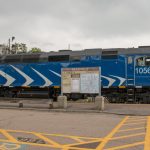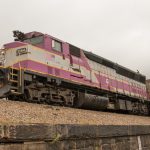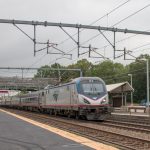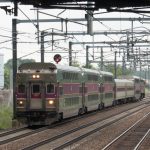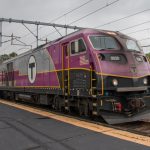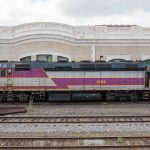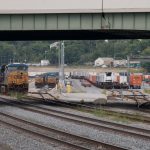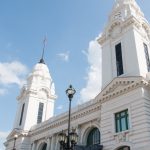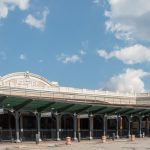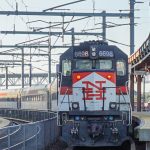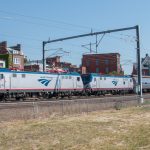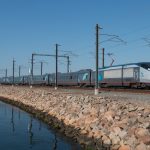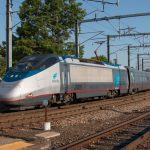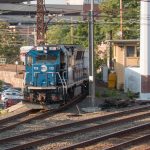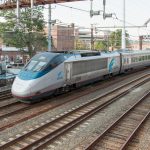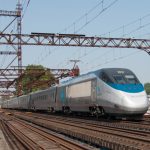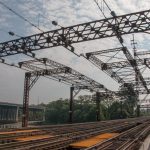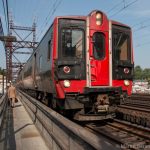
North Easter Corridor-
Boston to Philadelphia
Railfanning along the
North Easter Corridor-
Boston to Philadelphia
The North East Corridor always draw attention to me. This line from Washington DC to Boston is different in many ways. It is mostly passenger traffic- long distance and commuter. The NEC is operated at pretty high speed over more than 100 year old infrastructure. The line features four tracks from Philadelphia to New Haven and is electrified all the way! In a nutshell- heavy electrics pulling high speed passenger trains in an urban and costal setting – a must see!
Getting ready!
When I was planning my trip I had collected quite some general knowledge about the NEC. I read several books about GG1s, 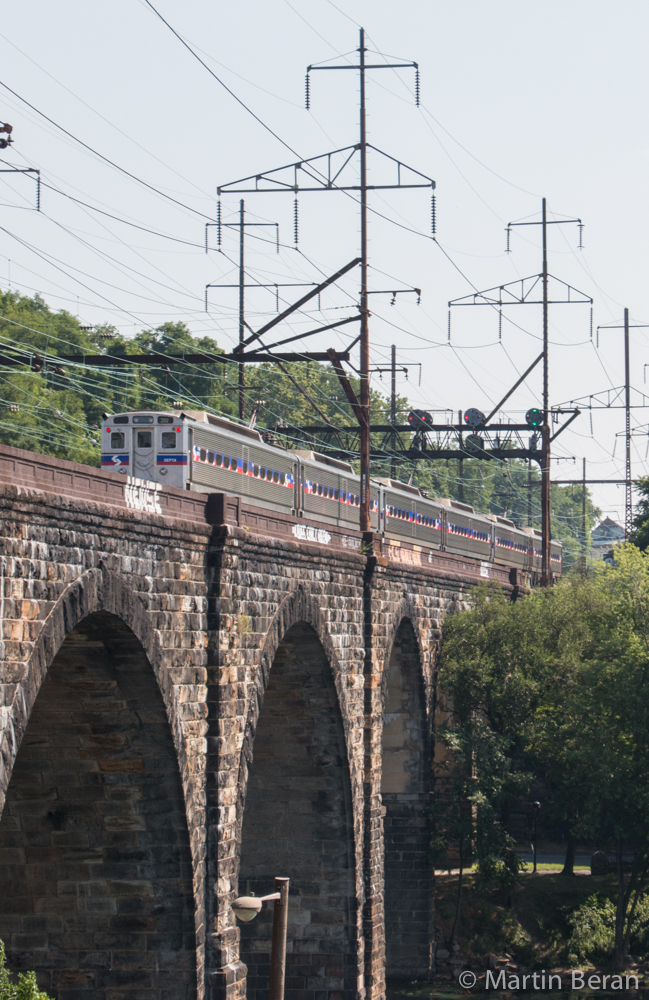 electrics, the PRR electrification and New Haven Railroad. In addition, magazines featured the line over the years. Given the fact, I was surprised that research for good photo spots on the net did not reveal much hints. Maybe I used the wrong key words or the information is scattered all around. So if someone has more information- I am grateful for any ideas! Anyways, this post is about the spots I visited while following the Amtrak and commuter trains from Boston down to Philly. On this part of the tour I bypassed New York City for several reasons. First of all I did not want to scarify my limited time to the overwhelming city. Second, I will be back in NYC later on this trip so there might be a chance to check it out by then.
electrics, the PRR electrification and New Haven Railroad. In addition, magazines featured the line over the years. Given the fact, I was surprised that research for good photo spots on the net did not reveal much hints. Maybe I used the wrong key words or the information is scattered all around. So if someone has more information- I am grateful for any ideas! Anyways, this post is about the spots I visited while following the Amtrak and commuter trains from Boston down to Philly. On this part of the tour I bypassed New York City for several reasons. First of all I did not want to scarify my limited time to the overwhelming city. Second, I will be back in NYC later on this trip so there might be a chance to check it out by then.
For your security….
Before we start, lets talk about security when watching trains. First of all I do not (knowingly) trespass private property or railway right of way- even if I miss one or the other good shot.
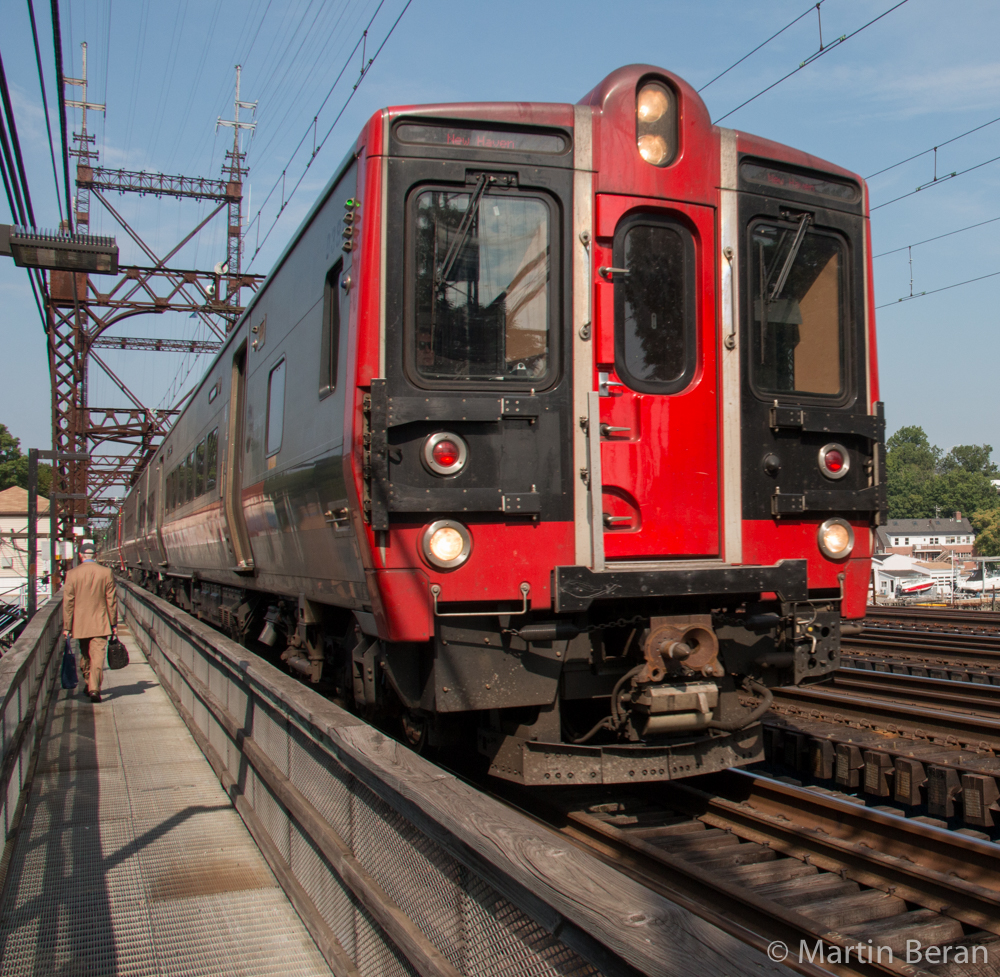
But on one hand side I’d like to stay out of trouble, be safe and on the other hand I hope to keep good locations accessible to rail fans like me in the future. Although walls and fences do not stop people with a real mission, it’s easier to set those up and make it harder for the ones who would take the chance. By doing so folks who know the limits get harmed. Long story short- behave and respect property and operation needs. Also, with so many scared people around, almost everyone with a camera taking pictures of infrastructure is a suspicious individual. It does not matter that reflected fear is not rational- the mindset is there so I try to not act like I have something troublesome in mind. I also believe that law enforcement personell got a better idea how to distinguish between crazy but harmless train buffs and harmless looking mad-heads. If questioned I answer polite and never had any issues so far. Last but not least it might be a good idea to keep an eye on the surrounding area and people while focussing on the trains. Again, I never had a bad experience, even as I am on my own most of the time. Greeting folks that are close works well to break the concerns on both sides and if it does not feel right it might be better to move on. Alright, let’s get going…
Boston
After some “traditional” sight seeing I turned my attention to the trains. As mentioned in a previous post, this city has a lot to offer for the interested rail fan. As a reminder here is a picture of the draw bridges across Charles River that carry the tracks into North Station: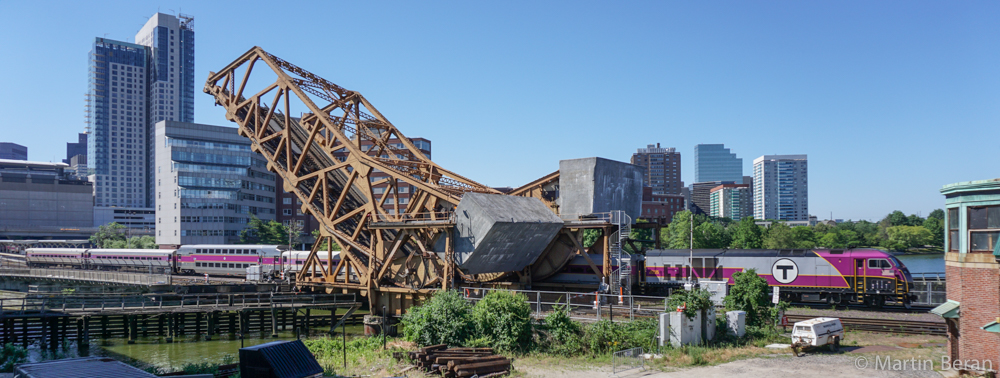
South station is the northern terminus of the North East corridor and therefore features lots of Amtrak heavy electrics besides of MBTA commuter services. Relatively easy access to the station platforms are a bonus for the train watcher. Once we have enough from the action in downtown lets board a local or hop in a car and off we go towards the suburban station of Readville.
Readville, Boston, MA
This location is about 10 miles south of city center (1774 Hyde Park Ave, Boston, MA 02136). Several MTBA commuter lines converge here in addition to the NEC. I happened to be around in the early afternoon but even then there was a steady parade of trains going by on multiple levels.
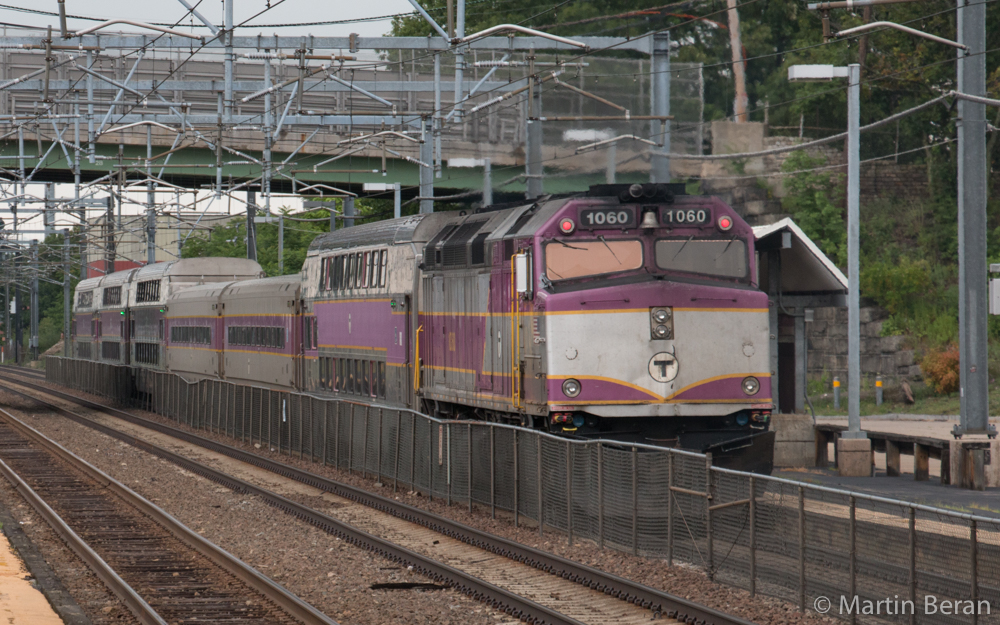
This stop is aimed towards commuter and there are several parking lots for folks to leave their car while going to work by rail. I would not recommend using one of the spots for short term parking though as the system for collecting the fee is also ted to commuting and a watchman patrolled the area for false parkers. But nothing is lost- there is street parking available right across the Dunkin’ Donuts outlet on Prescott street. Actually it seems that the DD is more of a public restroom with attached donut and coffee store. Nevertheless, a good spot to watch passenger traffic going in and out Boston. Due to the multiple points to aim the camera it seems to be a decent spot for getting pictures in the right light all day long. The following examples where taken during the rainy and overcast day I stopped by:
Worcester, MA
Leaving Readville and the NEC for a moment I headed to Worcester, MA (2 Washington St, Worcester, MA 01604) in order to see the newly renovated Union Station as well as get a glimpse of some CSX freight traffic.
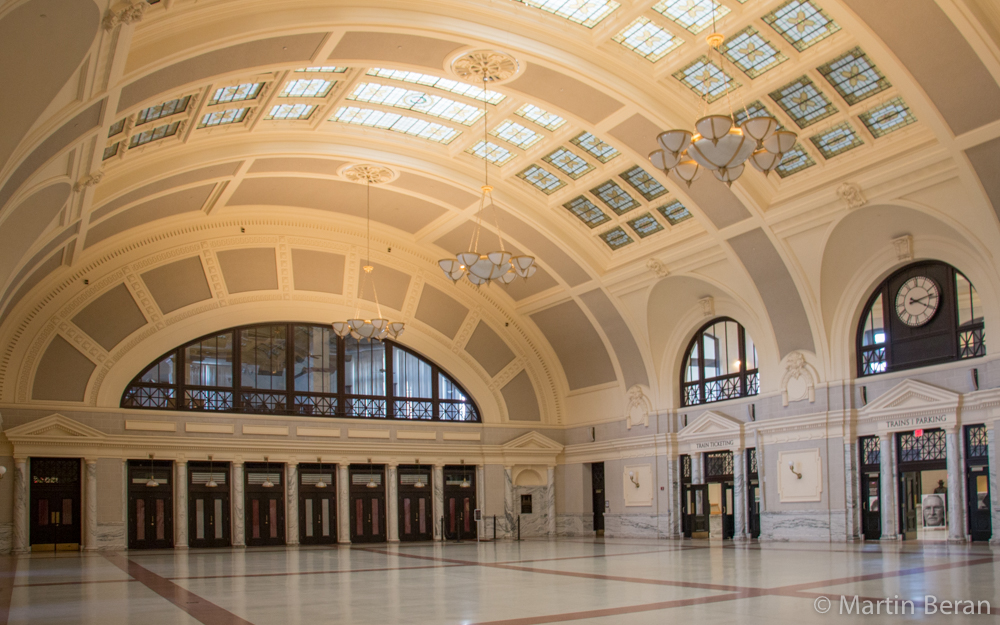
I found some pretty well mentioned or recently renovated station buildings on my trip but this one is the nicest so far! Somehow it seems that the people in Worcester just have to find out what to do with this gem. Besides of looking good the station hosts the daily Amtrak train as well as is the end of a MBTA line. CSX and a regional freight line roam the area but traffic was low when I stopped by. Located in the angle between two branches of track this is a classic layout for a small city station.. Nevertheless, this is a station worthwhile to visit. There is plenty of parking viable in the attached garage (for a fee of course). The tracks approaching under the Medical Center from the North might be inspiring for model railroaders.
New London, CT
New London () on the Thames River right across the Groton Submarine base is our next stop. I have to admit that I picked this town mostly for it’s proximity to the Nautilus museum but research on google maps was promising in regards to rail fanning as well. And yes, it’s a good spot indeed.
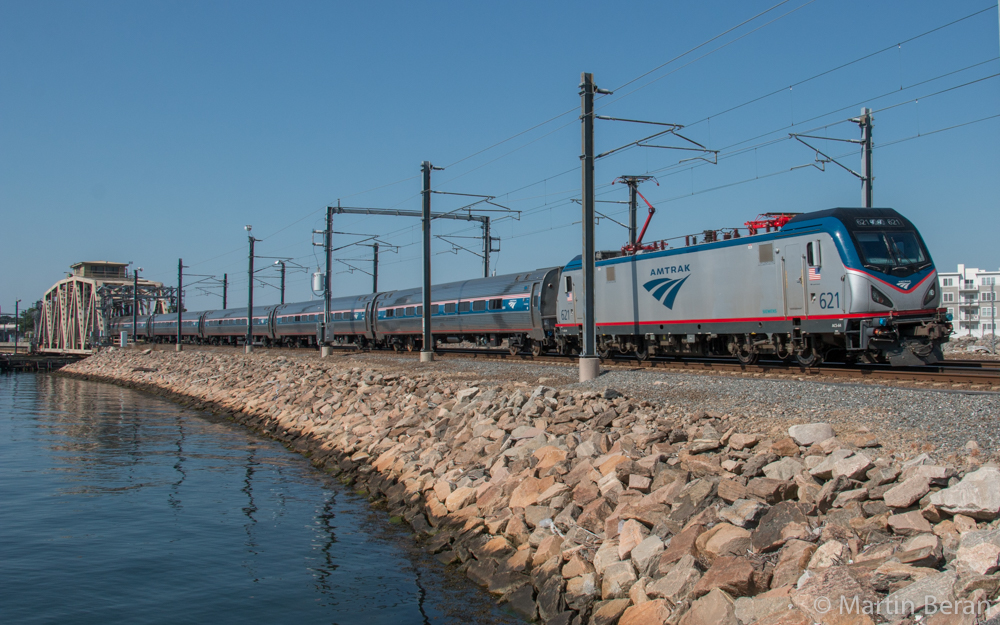
New London features a small downtown/historic district with a beautiful brick station building as well as a boardwalk giving great fews to the traffic on the river and the trains making their way between the shoreline and the town leaving towards NYC over a small being bridge. I the other direction rail traffic passes over the Thames river via a big steel bridge accompanied by the even higher freeway overpass. Bedsides of Amtrak- there is even one Acela Express scheduled to stop once a day New Haven regional trains use New London station as a stop before returning back home. I was happy to see one of the commuter line diesels painted in “classic” NH McGinnis colors. This is a pretty calm town, at least during my stay. There are some unfortunate but harmless folks roaming the streets and in the evening tourists and travelers from the ferries check in for dinner. Talking about food- I had good Thai dish at the “Lazy Leopard Thai Cafe”, 45 Bank St, New London. Next Morning between tow trains I got coffee and a pretty good breakfast sandwich at the Washington Street Coffee House, 13 Washington St # 1, New London, CT.
New Haven,
Another impressive station building! It looks like this awesome structure has been renovated recently- bright and clean, stores, take outs and model train displays on top of the rows of seats in the main waiting room. There is lots of parking available in the garages around, for a fee of course and several platforms serve long distance travelers as well as commuters. So, all good? Well sure, unless one calls himself a railman who is on the hunt for pictures. Here New Haven station and its surroundings are kind of disappointing. Everything is pretty much fenced off or not accessible. So leave the camera behind and walk up towards the bridge that goes across the tracks. Amtrak services some of the engines and transits there. Continue across the road that leads over the bridge (but do not go on the bridge) and see the action even closer. It is still a great sight- but sorry, no really good spot for taking photos. New Haven was the long term Northern end of the electrification. Here trains to Boston got new power and vice versa. Today the catenary goes all the way up to Boston South Station but the changeover is still to be recognizable by the different designs of overhead wire mounting gear. Here modern, somehow “European” looking masts give way to steel lattice frames erected by the New Haven Rail Road. We will see another change in how the wires are kept up in the air south of New York on entering former Pennsy territory. One way or the other, I like the NH style catenary most.
Norwalk, CT – SONO Switch Tower Museum
After the quick intermediate stop in NH, I followed Route 15, the Wilbur Cross Parkway which is a nice alternative to I95 towards Norwalk. There I hoped to get to visit the SONO Switch Tower Museum, 77 Washington Street, South Norwalk, CT.
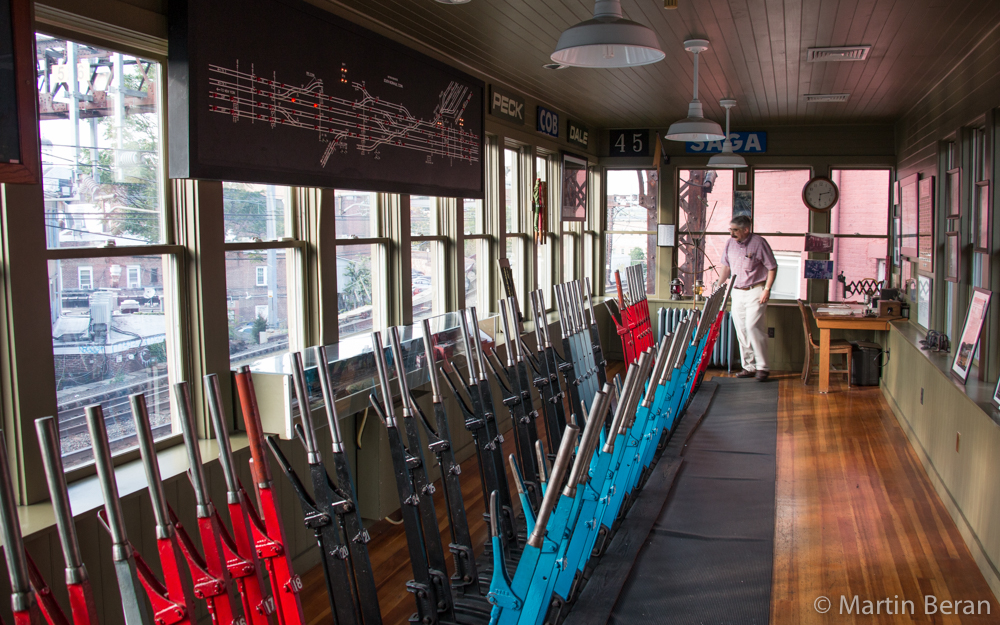
When I rode the Amtrak train up to Boston a couple days before, I recognized an old
switch tower with the sign SONO Switch Tower museum on the side. Of course I was immediately interested and did research on the net to learn more. At www.westctnrhs.org/tower.htm there is not only of good information to be found about the museum but also opening hours and directions posted. Normally the SONO tower can be visited on Saturdays afternoon from May till October. I came through in the middle of the week but luckily John Garofalo, the treasurer of the organization that runs the museum happened to be around and was very kind in giving me a personal tour as well as time to the pictures.
The tower
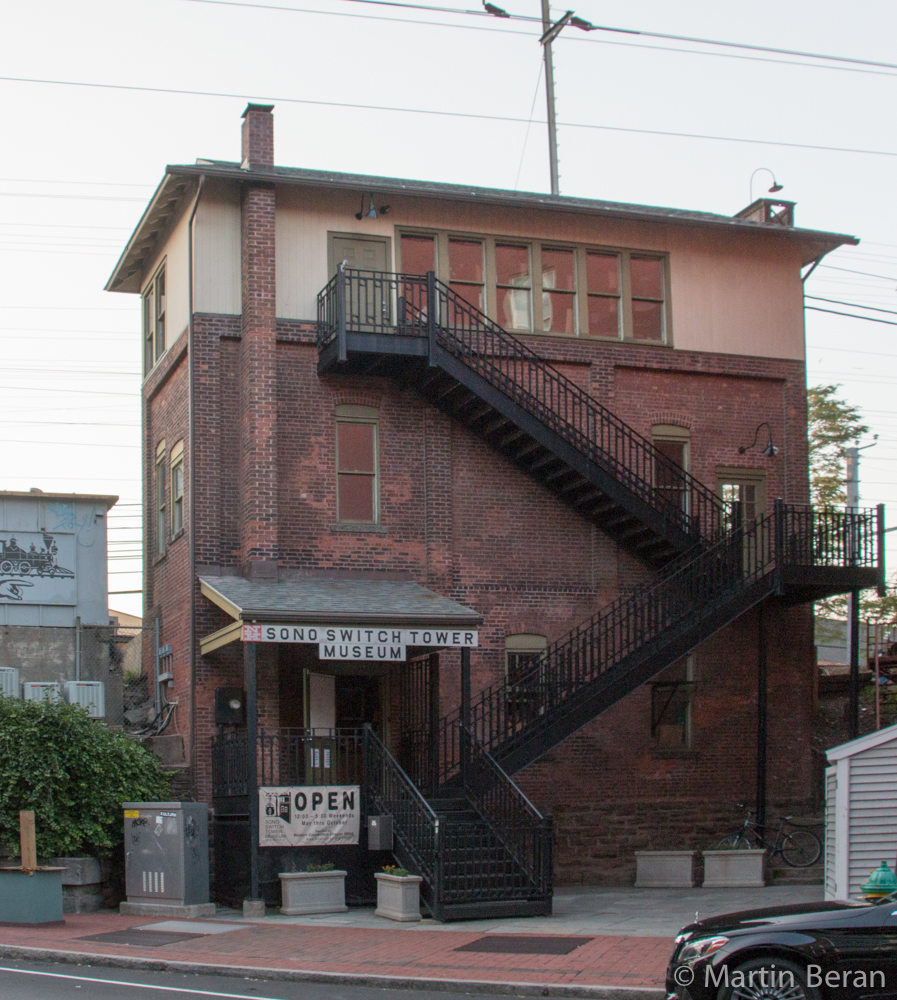 located in SOuth NOrwalk was one of many that lined the tracks in order to control train movements. This particular one handled the the four maintain tracks with several crossover routes as well as the junction leading to the Danbury branch line. It was erected in 1896 during a major upgrade of the line including rising the whole right of way and installing bridges to solve interference with road traffic. The so-called armstrong interlocking machine controlled signals and switches while making sure that no false routes could be set. Although some changes have been made to the arrangement as well as an “upgrade” on the device 1919, the overall configuration did not change a lot. The whole interlocking plant was in operation till 1984 when it was replaced by a smaller tower right across the tracks wich deployed fully electro-mechanical interlocking. Interestingly the career of the new tower lasted only till 1991 when the plant became CP 240, remotely controlled form Manhattan.
located in SOuth NOrwalk was one of many that lined the tracks in order to control train movements. This particular one handled the the four maintain tracks with several crossover routes as well as the junction leading to the Danbury branch line. It was erected in 1896 during a major upgrade of the line including rising the whole right of way and installing bridges to solve interference with road traffic. The so-called armstrong interlocking machine controlled signals and switches while making sure that no false routes could be set. Although some changes have been made to the arrangement as well as an “upgrade” on the device 1919, the overall configuration did not change a lot. The whole interlocking plant was in operation till 1984 when it was replaced by a smaller tower right across the tracks wich deployed fully electro-mechanical interlocking. Interestingly the career of the new tower lasted only till 1991 when the plant became CP 240, remotely controlled form Manhattan.
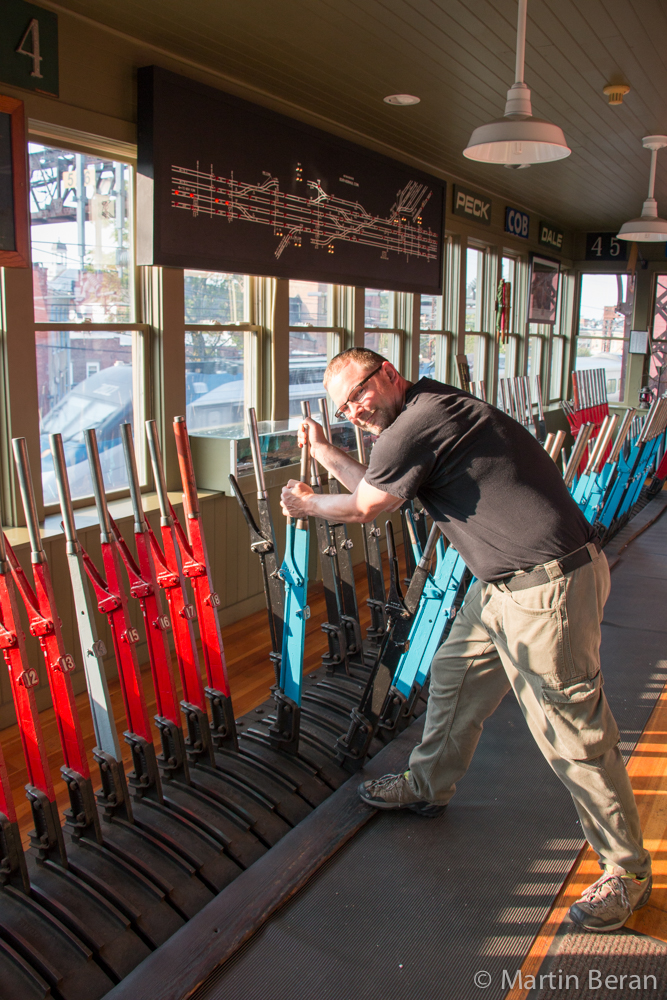
John, later joined by Tony White, introduced me to the general idea of mechanical interlocking machines and provided an in-depth explanation about the machine at the SONO tower, called “S.S.44” by the New Haven RR and later renamed “Berk” by Penn Central. After a quick training I got the chance to operate the machine. Following the required process – set the home signals to stop first! – switch levers can be handled and if all has been set correctly the respective signal can be thrown into a “clear” position. Of course the respective actions have no effect on the operation outside. The machine is disconnected from the trackside plant since the retirement of the tower but the group running the museum connected the model board above the lever bank in a way that action by the levers can be seen- amazing! On the second floor the actual control mechanism of the interlocking machine is located. Here the real “magic” of making sure that all actions by the operator legitimate. This is pure mechanics with rods and bolts sliding into position! Having been into SW development I can hardly imagine the pressure of the designers to get it right the first time because changes are very, very costly undertakings. But it worked out just fine and besides the tower operator on the third floor, a full time signal maintainer made sure nothing was getting stuck. This job got really difficult in winter times.
Western Connecticut Chapter NRHS
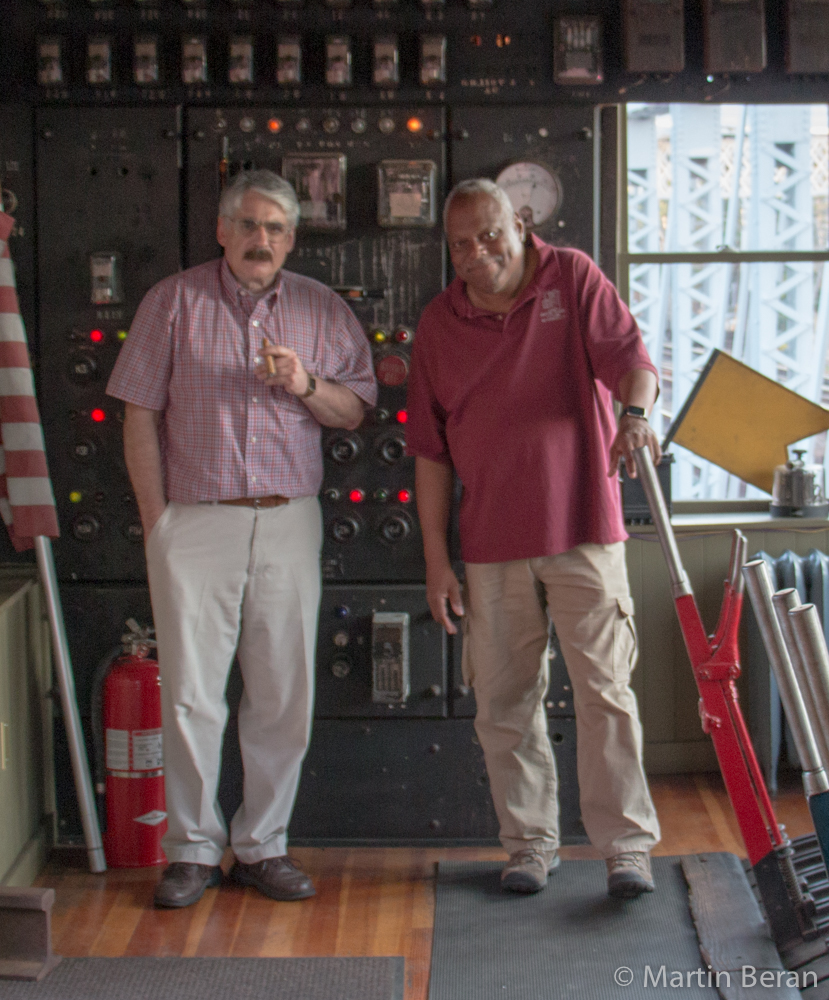
John Garofalo and Tony White are members of the Western CT Chapter of the National Railway Society. This group, mostly former tower operators and rail roaders, dedicate their time to preserve the tower and introduce younger generations to the art of railroading in the 20th century. There are annual gatherings of retired tower operators. Related to this activities is the release of a book about the tower which is highly recommended to anyone who wants to learn more about signal tower technology in general and the S.S.44 / Berk tower in particular. As a rail fan I am always grateful for groups that put a lot of love and work into keeping memories of long gone days alive by running museums like the SONO tower, restoring rolling stock or conducting excursions with historical equipment. Let’s be supportive by visiting the events and exhibits, honoring their work and, last but not least- donations!
Norwalk is a busy place, especially during rush hours. Parking is available but not necessarily free (close to downtown). I found a spot at the parking lot on Havilland street, right behind the main business district and a short walk to the tower.
The two gentlemen mentioned a four track swing bridge not far from the downtown Norwalk that might be interesting to see and that is exactly where I went the next morning.
Westport, CT
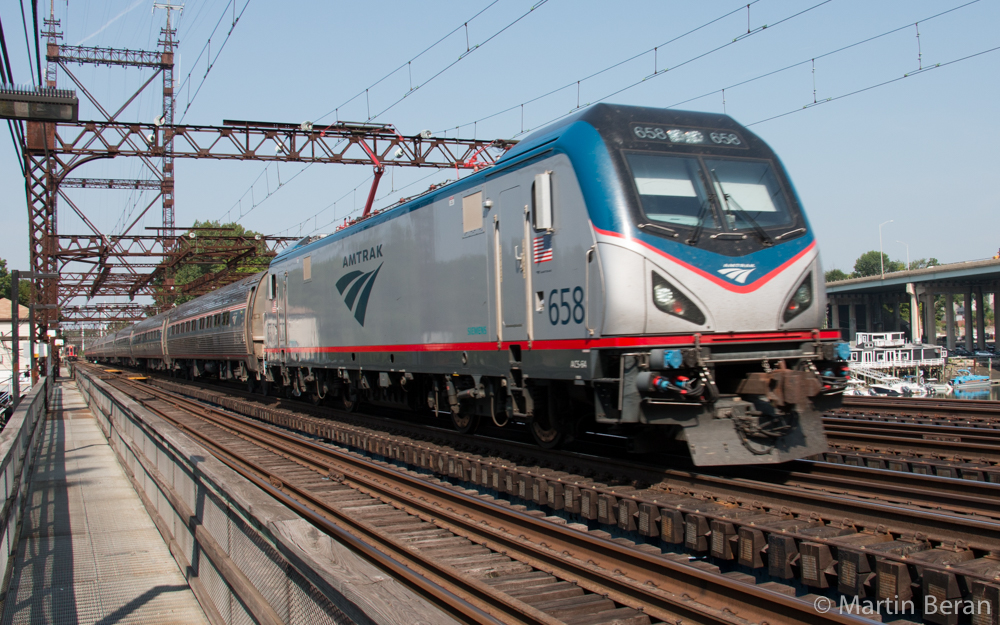
This is actually a really good spot for watching trains (as well as taking pictures). The Saugatuck River swing bridge features pretty much everything a railfan can dream of: high volume of traffic, great setting and unobstructed few! IT is locked right next to the Westport train station, 99 Railroad Place, Westport, CT 06880. AS with every commuter oriented stop, there is plenty of parking which is mostly tailored for long term and contract parking. But the train buff who is just here to watch the action for a while is lucky by obtaining short term parking spaces right in front of the station.
There is a walkway right attached to the side of the track which can be accessed from the southern platform. It seems like space constrains prevented putting up a fence so the trains go by the pedestrians really close. Light is good in the morning hours an I hit the spot right on time. As mentioned above, traffic is pretty dense with lots of MU hauling commuters in and out of New York but also Amtrak shoes presence with Regionals and Acela Express units. The silent moments can be uses to explore the locking mechanisms for track and catenary. Someone told me that the whole bridge is lifted before it swings into the clear which is a neat way of doing it. I did not have the chance to watch such an action in person as it is a pretty rare event that the bridge is turned in order to allow large vessels to pass.
